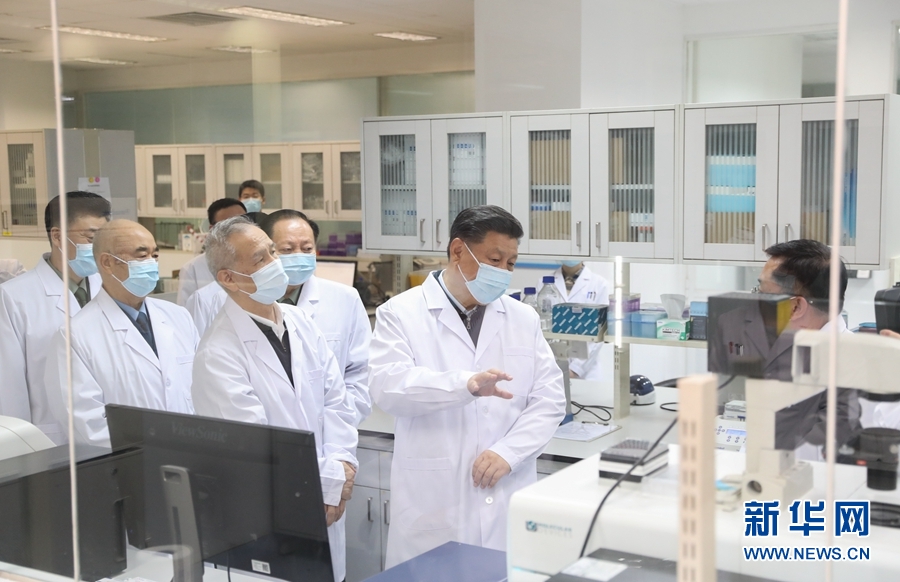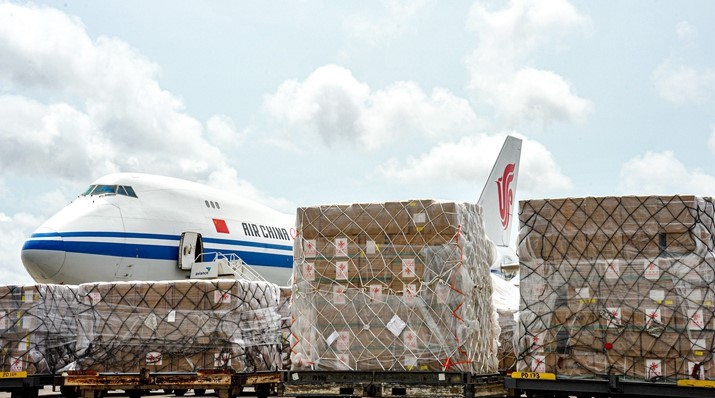The Road Ahead

The outbreak of COVID-19 and its rapid spread worldwide has fundamentally challenged humanity’s imagination to rise above the particularisms of nationality, race, ethnicity, religion and even levels of development exclusivity, and move toward the inclusiveness of common humanity.
The vulnerability of people across all nations in the face of the rampaging COVID-19 not only challenges the traditional conception of national security, but also highlights imperatives relating to the vision of a community with a shared future for humanity. The outline of such a future was glaringly put on the global agenda with the advent of China’s Belt and Road Initiative. It envisages the convergence of human interests and aspirations across national boundaries, without seeking to undermine the existing structure of the contemporary international system, while putting sovereign states as its core unit of engagement. However, this vision of a community with a shared future for humanity recognizes the strategic network of critical and hard infrastructures that would underwrite it.
The outbreak of COVID-19 has squarely put into context the notion of our common humanity contained in the vision of building a community with a shared future for all humankind. At the First Belt and Road Forum for International Cooperation held in May 2017, Chinese President Xi Jinping described infrastructure connectivity, which is at the core of the Belt and Road Initiative, as the foundation of development through international cooperation and urged the promotion of land, maritime, air and cyber space connectivity, connecting the networks of highways, railways and seaports. In addition, Xi urged improvement of trans-regional logistics networks, and promoting coordination in policies, rules and standards so as to provide institutional safeguards for connectivity.
The outbreak of COVID-19 and its rapid spread worldwide has fundamentally challenged humanity’s imagination to rise above the particularisms of nationality, race, ethnicity, religion and even levels of development exclusivity, and move toward the inclusiveness of common humanity.

The political distraction in certain quarters that the Belt and Road Initiative framework is China’s geo-political tool of influence is now summarily hollow. This is because its core contents of a practical roadmap to functional international cooperation through joint development efforts is vindicated by the joint global efforts to curb and contain a malicious virus sneaking across borders and sowing death and despair.
The outbreak of COVID-19 has brought international cooperation in public health into focus and to curb the non-traditional security threat, the urgency for cooperation in the field of public health security ranks above military alliances and traditional security threats.
The coronavirus, which was first detected in the Chinese city of Wuhan, but with an uncertain origin, took the world by storm, ravaging Europe, tormenting America and burrowing into Africa and other regions of the world. China declared a people’s war against the disease, mobilizing its national capacity and tapping into international goodwill. This has largely seen off the worst of the damage that the disease can cause.
According to Minister of Foreign Affairs of China Wang Yi, the international community shared the view that the speed, intensity and scope of China’s epidemic response is rarely seen in the world, that the leadership, response, mobilization and implementation capabilities China has demonstrated are exemplary for the rest of the world and that China has gathered valuable experience for the international community in handling emergencies caused by infectious disease and advancing global public health governance.

However, beyond China’s valuable experience, it has demonstrated the highest sense of responsibility as a major country. Strict measures have been taken to contain the virus within the country, China bought time for other countries.
For example, at the time of writing, not a single case of the virus entering Africa is reported to have been imported from China, despite the vigorous economic and social exchange between China and Africa. As with the case of the deadly Ebola outbreak in Africa in 2014, China is now engaging Africa in disease control and containment, and donating medical supplies and equipment, all critical tools to control and contain the disease.
As COVID-19 is not a mass death sentence, the world will certainly recover from its menace and the economic and social disruptions it has created in its wake, but the evident lessons it teaches must be assessed, internalized and built into the structure of the emerging international exchanges and contacts.
As the report of the WHO-China joint mission on COVID-19 informed us, “Most people infected with COVID-19 have mild disease and recover,” adding that, “approximately, 80 percent of laboratory confirmed patients have had mild to moderate disease.”
And, since the report was published in February, efforts have been intensified at diagnostic and therapeutic containment of the disease. What is actually left is to internalize the lessons of the disease outbreak and build a community with a shared future for humanity.
At his speech at the UN General Assembly in Geneva on January 18, 2017, Xi raised the concern that, “pandemic diseases, such as bird flu, Ebola and Zika, have sounded the alarm for international health security. The WHO should play a leadership role in strengthening epidemic monitoring and in sharing information best practices and technologies.” He also urged “the international community to step up support and assistance for public health in African countries and other developing countries.”
The COVID-19 has accelerated the urgency that the building of a community with a shared future for humanity is the imperative of our time. Xi urged that “great vision can be realized through actions,” and “actions hold the key to building a community with a shared future for humanity.”
So it is time that all the national actions deployed to combat the COVID-19 coalesce into an international joint effort to strengthen and advance our common humanity.
The author is research director of the Center for China Studies, Abuja, Nigeria.
 Facebook
Facebook
 Twitter
Twitter
 Linkedin
Linkedin
 Google +
Google +










